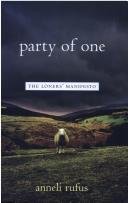Kate’s a huge Steve Goodman fan, still. Steve Goodman was a huge Cubs fan. And I’m pretty sure Kate introduced me to this song, which allegedly debuted on WGN radio in March 1983 (there’s a live version on the album “Affordable Art“; someone’s posted a Wrigley Field montage on YouTube with “Last Request” as the soundtrack). I’ve always loved it, though of course I have a bone to pick: I believe the reference to “Na Na Na Na Hey Hey Goodbye” is out of place; I’ve always though that was a White Sox thing. I don’t recall ever hearing it at Wrigley Field (though admittedly my visits have been few since the Ford administration).
The most memorable occasion I heard this song was on Berkeley’s KPFA. Examiner jazz and pop music critic Phil Elwood had a show there, and when Goodman died — in 1984, after a long, long bout with leukeumia, just a week or two before the Cubs clinched their first division title ever and their first postseason appearance since the 1945 World Series — Elwood played this. Someone at The Examiner taped it, and after we put out the first edition one morning, the handful of Cubs fans on the early desk repaired to a back office to listen to it. Bunch of tough newspaper types. There wasn’t a dry eye among us.
(And oh, yeah: I’ve been too busy ambivalatin’ to say anything about it, but the Cubs are back in the playoffs! And … get ready … they lost Game One to the Diamondbacks.)
The Dying Cub Fan’s Last Request
By the shores of old Lake Michigan
Where the hawk wind blows so cold
An old Cub fan lay dying
In his midnight hour that tolled
Round his bed, his friends had all gathered
They knew his time was short
And on his head they put this bright blue cap
From his all-time favorite sport
He told them, “It’s late and it’s getting dark in here”
And I know it’s time to go
But before I leave the line-up
Boys, there’s just one thing I’d like to know …
Do they still play the blues in Chicago
When baseball season rolls around?
When the snow melts away,
Do the Cubbies still play
In their ivy-covered burial ground?
When I was a boy they were my pride and joy
But now they only bring fatigue
To the home of the brave
The land of the free
And the doormat of the National League?
He told his friends, “You know the law of averages says
Anything will happen that can,
That’s what it says,
But the last time the Cubs won a National League pennant
Was the year we dropped the bomb on Japan.”
The Cubs made me a criminal
Sent me down a wayward path
They stole my youth from me
(that’s the truth)
I’d forsake my teachers
To go sit in the bleachers
In flagrant truancy
And then one thing led to another
and soon I’d discovered alcohol, gambling, dope
football, hockey, lacrosse, tennis —
But what do you expect
When you raise up a young boy’s hopes
And then just crush ’em like so many paper beer cups
Year after year after year
after year, after year, after year, after year, after year
‘Til those hopes are just so much popcorn
for the pigeons beneath the ‘L’ tracks to eat.
He said, “You know I’ll never see Wrigley Field anymore before my eternal rest
So if you have your pencils and your scorecards ready,
I’ll read you my last request.”
He said, “Give me a doubleheader funeral in Wrigley Field
On some sunny weekend day (no lights)
Have the organ play the “National Anthem”
and then a little ‘na, na, na, na, hey hey, hey, goodbye’
Make six bullpen pitchers, carry my coffin
and six groundkeepers clear my path
Have the umpires bark me out at every base
In all their holy wrath.
It’s a beautiful day for a funeral! Hey Ernie let’s play two!
Somebody go get Jack Brickhouse to come back
and conduct just one more interview.
Have the Cubbies run right out into the middle of the field,
Have Keith Moreland drop a routine fly
Give everybody two bags of peanuts and a Frosty Malt
And I’ll be ready to die
Build a big fire on home plate out of your Louisville Sluggers baseball bats,
And toss my coffin in
Let my ashes blow in a beautiful snow
From the prevailing 30 mile an hour southwest wind
When my last remains go flying over the left-field wall
I will bid the bleacher bums adieu
And I will come to my final resting place, out on Waveland Avenue.
The dying man’s friends told him to cut it out
They said stop it, that’s an awful shame
He whispered, “Don’t cry, we’ll meet by and by near the Heavenly Hall of Fame.
He said, “I’ve got season’s tickets to watch the Angels now,
So it’s just what I’m going to do.
He said, “but you the living, you’re stuck here with the Cubs,
So its me that feels sorry for you!”
And he said, “Ahh play that lonesome losers tune,
That’s the one I like the best”
And he closed his eyes, and slipped away
What we got is The Dying Cub Fan’s Last Request,
And here it is
Do they still play the blues in Chicago
When baseball season rolls around?
When the snow melts away,
Do the Cubbies still play
In their ivy-covered burial ground?
When I was a boy they were my pride and joy
But now they only bring fatigue
To the home of the brave
The land of the free
And the doormat of the National League
Technorati Tags: chicago, cubs, steve goodman
Like this:
Like Loading...


